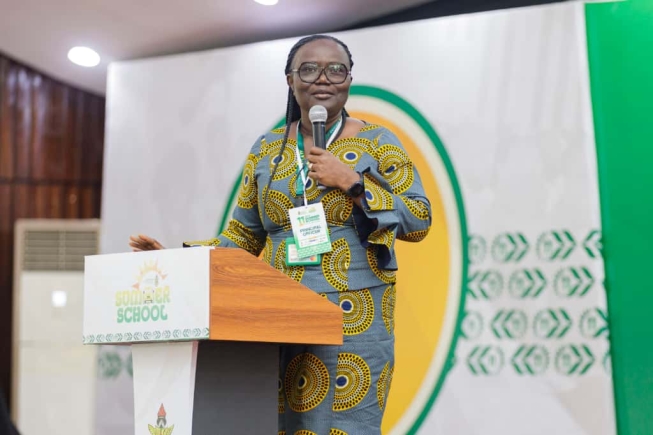Beginning the 2025/2026 academic year, every student at the Kwame Nkrumah University of Science and Technology (KNUST) will be required to take a one
Beginning the 2025/2026 academic year, every student at the Kwame Nkrumah University of Science and Technology (KNUST) will be required to take a one-credit course in Artificial Intelligence (AI).
The Vice-Chancellor, Professor (Mrs) Rita Akosua Dickson, announced that the initiative—aligned with both the national AI strategy and KNUST’s own digital transformation agenda—has been approved by the university’s Academic Board and Governing Council.
“Effective next academic year, every student will take a micro-credential course in AI, which will be delivered through the university’s e-learning platform. Students and staff who complete the course will receive certification to enhance their global competitiveness,” she stated.
Prof. Dickson made the disclosure at the opening ceremony of the 11th KNUST Summer School on Tuesday, October 21, 2025. This year’s three-day event is themed “Artificial Intelligence in Education.”
Since its inception in 2011, the KNUST Summer School has grown into a major professional development platform, expanding in scope and participation each year.
The Vice-Chancellor added that staff members interested in upgrading their skills could also enroll in the AI course. “Students can choose to take it in their first, second, or any other year before completing their studies,” she explained.
Prof. Dickson urged the academic community to embrace AI and other emerging technologies, emphasizing that higher education must evolve to remain relevant.
“We cannot remain static. Our pedagogical architecture must adapt to new developments,” she said, adding that the university will continue working with government and other stakeholders to harness the benefits of AI for national development.
She also cautioned against unethical use of the technology, stressing: “We must learn to use AI tools responsibly for the growth and progress of our country.”
